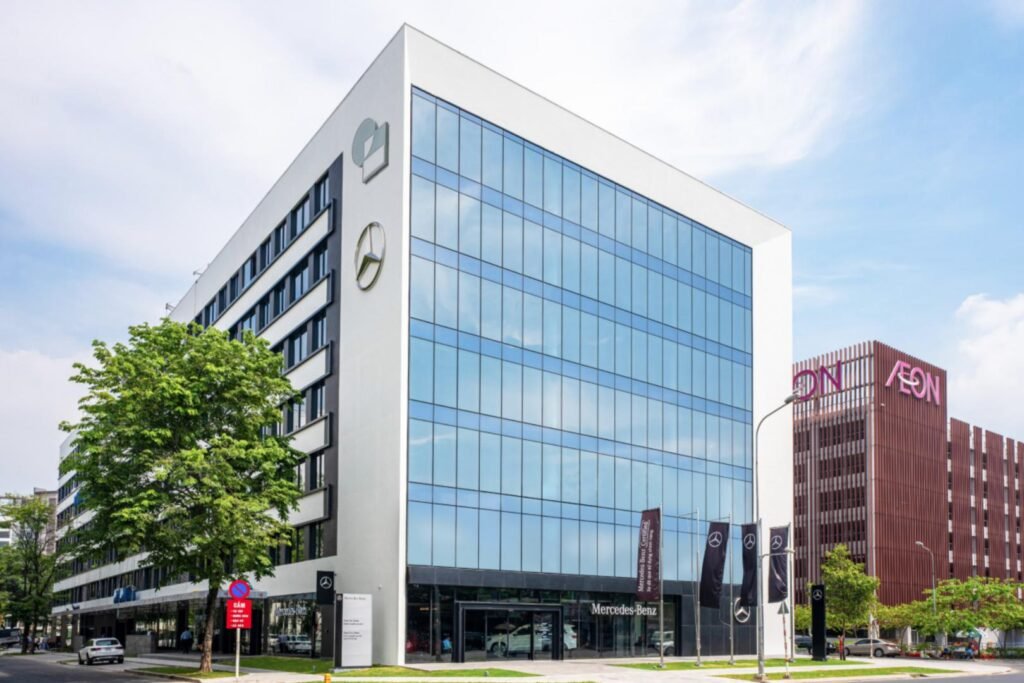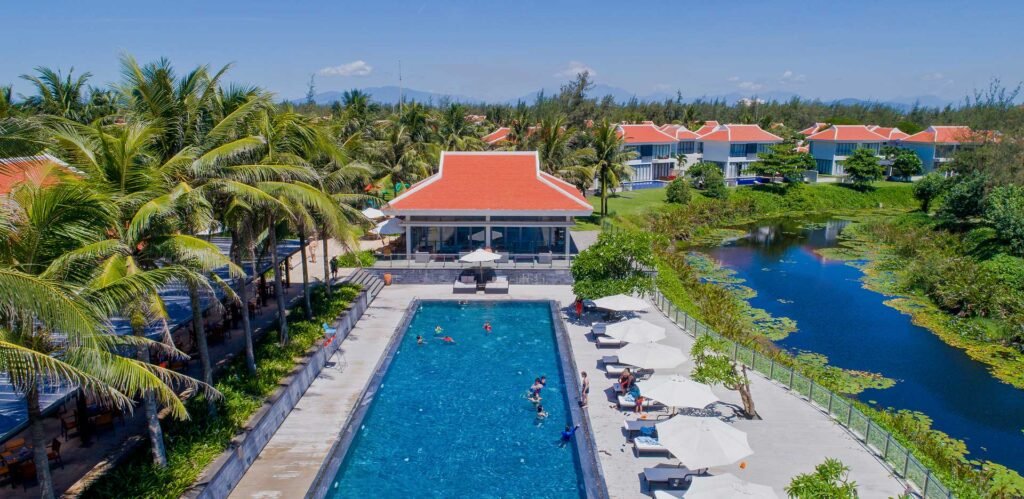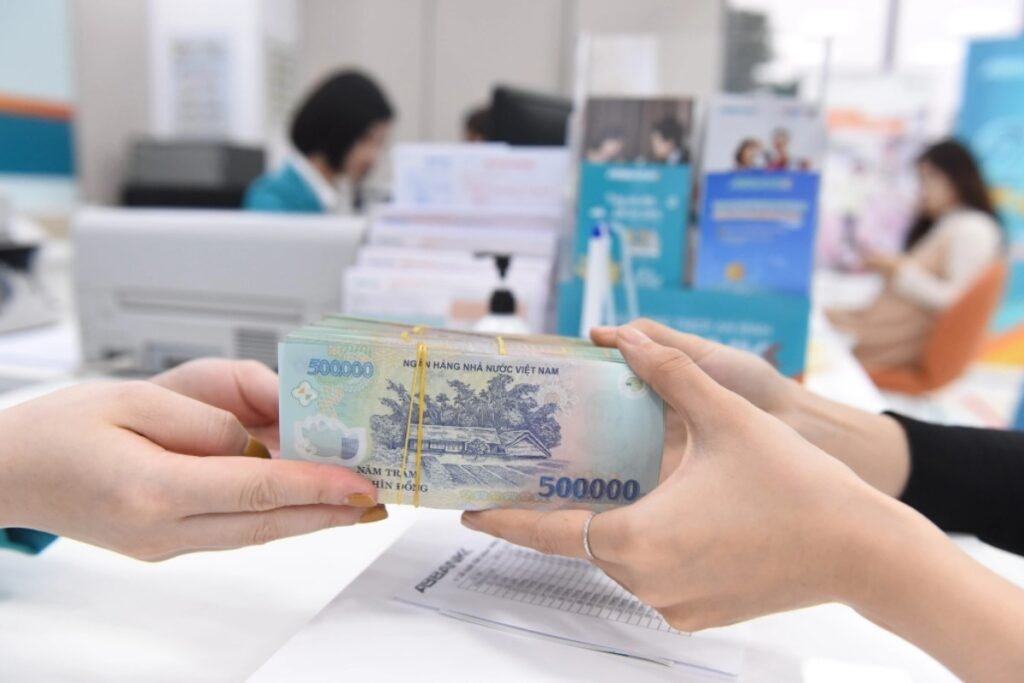Guide to Buy a Property in Vietnam: Complete Process for Foreign Buyers
Buying property in Vietnam can be tough for foreign investors. The real estate market in Vietnam is bouncing back after COVID-19. This makes it a good time for foreign investors to look into it.

Thinking about investing in Vietnam’s economy? Knowing how to own property as a foreigner is key. This guide will help you understand the laws, the steps, and what to watch out for. It aims to make your buying process easy.
Key Takeaways
- Understanding the legal framework for foreign property ownership in Vietnam
- Navigating the process of buying a property in Vietnam
- Avoiding possible problems in Vietnam real estate deals
- Opportunities for foreign investors in Vietnam’s growing economy
- Key things to consider for a smooth deal
The Vietnamese Real Estate Landscape
The Vietnamese property market is booming, with more transactions and higher prices. This is true in big cities like Hanoi and Ho Chi Minh City. The growth is thanks to foreign investment and a rising demand for properties.
Current Market Trends and Opportunities
Property prices in Vietnam are going up, thanks to more buyers. Foreign investment is a big factor in this trend. Investors are attracted to Vietnam’s fast-growing economy and rich culture.
There are many opportunities for investors in different property types. The government is working to improve infrastructure and make investing easier. This is helping the market grow.
Popular Locations for Foreign Investment
Foreign investors like cities like Hanoi and Ho Chi Minh City. These places have rising property prices. Coastal areas like Da Nang and Nha Trang are also popular, thanks to tourism and investment chances.
The table below shows top spots for foreign investment in Vietnam:
| Location | Average Price per Square Meter | Investment Opportunity |
|---|---|---|
| Hanoi | $1,500 – $3,000 | High demand for apartments and commercial properties |
| Ho Chi Minh City | $2,000 – $4,000 | Strong demand for office space and luxury apartments |
| Da Nang | $1,000 – $2,000 | Growing tourism industry and infrastructure development |
Price Ranges Across Different Regions
Property prices in Vietnam vary by region. This depends on location, property type, and amenities. Here’s a general look at price ranges in different areas:
| Region | Apartment Prices | Villa Prices |
|---|---|---|
| North Vietnam | $800 – $1,500 per square meter | $200,000 – $500,000 |
| Central Vietnam | $600 – $1,200 per square meter | $150,000 – $300,000 |
| South Vietnam | $1,000 – $2,000 per square meter | $300,000 – $600,000 |
Legal Framework for Foreigners Buying Property in Vietnam
For foreigners wanting to buy property in Vietnam, knowing the legal framework is key. The laws have changed a lot, making it easier for international investors to get involved.
The 2015 Housing Law and Its Implications
The 2015 Housing Law was a big step for Vietnam’s real estate. It lets foreigners own property in commercial projects. This has brought more foreign money into the market.
“The 2015 Housing Law has been instrumental in opening up Vietnam’s property market to foreign investors,” says a leading real estate expert. This change has helped the market grow and given foreigners more choices.
Types of Ownership Available to Foreigners
Foreigners can own different types of properties in Vietnam. This includes apartments and houses in commercial projects. The law lets foreigners own up to 100% of these properties, opening up big investment chances.
- Ownership of apartments in high-rise buildings
- Ownership of houses or villas in designated areas
- Ownership rights are transferable and inheritable
Duration of Ownership Rights
Foreigners in Vietnam usually own property for 50 years. They can renew this for another 50 years. This gives them long-term security and flexibility in their investments.
It’s essential for foreign investors to understand the terms and conditions of their ownership rights to make informed decisions. Getting advice from legal experts and real estate pros can help a lot in understanding Vietnam’s property laws.
Eligibility Requirements for Foreign Buyers
To buy property in Vietnam, foreign buyers must meet certain legal rules. Knowing these rules is key for a smooth deal and to follow Vietnamese law.
Visa and Residency Considerations
Foreign buyers need a valid visa to buy property in Vietnam. The visa type depends on the stay’s purpose and length. Usually, a tourist visa won’t do; you’ll need a long-term visa or residency permit.
It’s important to talk to Vietnamese immigration or a legal expert to find the right visa.
Investment Thresholds
Vietnam has rules for foreign buyers. There’s no minimum price for properties, but there are limits. Foreigners can own up to 30% of apartments in a condominium and 250 houses in an area.
These rules can change, so it’s important to keep up with the latest laws.
Restricted Areas and Properties
Some areas and properties in Vietnam are off-limits to foreign buyers. This includes places near military bases or borders. It’s important to check the property’s location and status with local authorities or a trusted real estate agent.
Also, foreign buyers should know about land use rights and property ownership laws in Vietnam. Understanding these will help make a good choice and avoid legal problems.
Types of Properties Available to Foreigners
Foreigners can find many types of properties in Vietnam. This includes condominiums and commercial spaces. The Vietnamese government welcomes foreign investors, making it easier to own property.
According to the latest regulations, foreigners can buy, lease, or inherit homes. This has brought more foreign investment to Vietnam’s property market.
Condominiums and Apartments
Condominiums and apartments are favorites among foreigners. They are safe and convenient, located near amenities and public transport.
Benefits of Condominiums and Apartments:
- Modern amenities and facilities
- Secure living environment
- Prime locations
Villas and Townhouses
Villas and townhouses provide more space, with private gardens and outdoor areas. They are perfect for families or those wanting a calm lifestyle.
“The demand for villas and townhouses has increased among foreign buyers. They want more space and privacy.”
Commercial Properties
Foreigners can also buy commercial properties like office spaces and retail units. These offer good investment chances, with rental income and value growth.
Key Considerations for Commercial Properties:
| Location | Rental Yield | Capital Appreciation |
|---|---|---|
| Ho Chi Minh City | 5-7% | 10-15% |
| Hanoi | 4-6% | 8-12% |

Top Locations for Buying Property in Vietnam
Vietnam has many places to invest, from busy cities to quiet coasts. As a foreign buyer, you might want places that are both good for business and offer a great life.
Ho Chi Minh City Real Estate Market
Ho Chi Minh City, once called Saigon, is Vietnam’s biggest city and a key business center. Its real estate market is lively, with many properties to choose from. You can find fancy apartments in District 1 or more affordable homes outside the city. Consider District 2 for modern buildings and District 7 for schools and expats.
Hanoi Property Investment
Hanoi, the capital, is also a top spot for investing in property. The Old Quarter is famous for its history and culture. New areas like Times City and Royal City offer luxury and modern living. Hanoi’s market is stable and has good growth chances.
Coastal Areas: Da Nang, Nha Trang, and Phu Quoc
The Vietnamese coast has many cities and towns that attract foreign buyers. Da Nang is loved for its beaches and modern buildings. Nha Trang is popular for its beaches and lively nightlife. Phu Quoc, an island near Cambodia, is known for its luxury resorts and beaches.
- Da Nang has beachfront homes and city developments.
- Nha Trang is great for those who want to relax and have fun.
- Phu Quoc is ideal for luxury tourism projects.
Emerging Markets: Hai Phong and Can Tho
Hai Phong and Can Tho are also worth looking at. Hai Phong is a big port city in the north with growing business and industry. Can Tho is in the Mekong Delta, famous for its markets and farming. These cities offer chances for early investors in Vietnam’s growth.
When choosing a location, think about the local infrastructure, economic growth, and rental income. This helps you make a smart choice that fits your investment goals.
Step-by-Step Process of Buying Property in Vietnam
For foreign buyers, knowing the steps to buy property in Vietnam is key. The process has several important steps to ensure a smooth purchase.
Initial Property Search and Selection
The first step is an initial property search. You look for properties that fit your needs. This means looking at different places, types of properties, and prices. A good real estate agent can help a lot.
- Look at popular places like Ho Chi Minh City, Hanoi, and coastal areas.
- Think about what kind of property you want: condos, villas, or commercial spaces.
- Check your budget and how you plan to finance your purchase.
Property Viewing and Assessment
After finding some properties, it’s time for property viewing. This is important to see the property’s condition, location, and growth possibilities.
- Check the property’s state and if it needs any work.
- Look at the neighborhood and local facilities.
- Think about how close it is to shops and public transport.

Negotiation and Offer Submission
Once you’ve picked a property, it’s time for negotiation. You’ll talk about the price and sale terms with the seller or their agent.
- Learn about the local market to make a smart offer.
- Be ready to negotiate; it’s common in Vietnam.
- Make sure all agreements are written down.
Finalizing the Purchase
The last step is finalizing the purchase. This means signing the sale agreement, doing any needed checks, and registering the property.
- Get a lawyer to check the sale agreement.
- Do checks on the property’s title and any debts.
- Register the property in your name with the authorities.
By following these steps, you can buy property in Vietnam with confidence. It’s a detailed process, but with the right help and preparation, you can succeed.
Essential Documentation for Property Purchase
To buy property in Vietnam, you need to know the necessary documents. The process requires several important documents. Knowing these will make buying property easier.
Required Personal Documents
Foreign buyers must provide personal documents. These include a valid passport, visa, and proof of income or employment. Make sure your passport is valid for at least six months after your stay in Vietnam. If you’re not there, you might need a power of attorney.
Property Documentation
Property documents are key. You’ll need the Land Use Rights Certificate (LURC) or the Red Book to prove ownership. The seller should give you this. You might also look at the property’s construction permit, architectural plans, and any contracts.
Legal Contracts and Agreements
Legal documents are vital in buying property. You’ll sign a Sale and Purchase Agreement that outlines the sale’s details. This includes the price, payment schedule, and any conditions. It’s wise to have a local lawyer check this to make sure it follows Vietnamese law.
As a legal expert noted,
“The Sale and Purchase Agreement is a critical document that protects both the buyer’s and seller’s interests. It’s essential to ensure that all terms are clearly stated and agreed upon by both parties.”
To wrap up, here are the main documents needed for buying property in Vietnam:
- Valid passport and visa
- Proof of income or employment
- Land Use Rights Certificate (LURC) or Red Book
- Sale and Purchase Agreement
Financing Your Vietnam Property Purchase
Looking into financing options is key when buying property in Vietnam. As a foreign buyer, you have many ways to get the funds you need.
International Banking Considerations
International banks provide services for foreign buyers in Vietnam. They often work with local banks, making managing money easier across borders. Think about interest rates, loan terms, and the bank’s reputation when choosing an international bank.
Key considerations include:
- Interest rates and loan terms
- Bank reputation and stability
- Range of services offered
Local Financing Options
Some Vietnamese banks give mortgage loans to foreigners, but rules can change. Local banks know the market well, making things easier. Look around to find the best bank for you.
Benefits of local financing include:
- Easier communication due to local language support
- Familiarity with local market conditions
- Streamlined processing for local transactions
Currency Exchange and Transfer Regulations
It’s important to know about currency exchange and transfer rules in Vietnam. You must understand how to move money in and out of Vietnam and any currency exchange limits.

- Regulations on foreign currency transactions
- Procedures for transferring funds internationally
- Compliance with anti-money laundering laws
By looking into your financing options and knowing the rules, you can make a smart choice for your property in Vietnam.
Understanding Taxes and Fees When Buying Property in Vietnam
Buying property in Vietnam comes with various taxes and fees. As a foreign buyer, you must consider more than just the purchase price. You also need to think about the extra costs of owning property here.
Registration Taxes and Stamp Duty
Registration taxes and stamp duty are initial costs to consider. The registration tax is based on the property’s value. Stamp duty is applied to the sale contract.
Registration Tax Rate: The rate depends on the property type and location.
Value Added Tax (VAT)
VAT is another cost in property transactions. But, VAT is usually included in the sale price or rental income.
VAT Rate: Vietnam’s standard VAT rate is 10%. It can be reduced or exempt under certain conditions.
Annual Property Taxes
As a property owner, you must pay annual property taxes. These taxes are based on the property’s value. They help fund local infrastructure and services.
Capital Gains Tax Considerations
When selling your property, you may face capital gains tax. This tax is based on the profit from the sale.
| Tax/Fee Type | Description | Rate/Amount |
|---|---|---|
| Registration Tax | Tax on property registration | Variable rate |
| Stamp Duty | Tax on sale contract | 0.5% – 1% |
| VAT | Value Added Tax | 10% (standard rate) |
| Annual Property Tax | Tax on property ownership | Based on property value |
| Capital Gains Tax | Tax on profit from sale | Based on profit made |
It’s important to understand these taxes and fees when buying property in Vietnam. This knowledge helps with budgeting and making informed decisions. It’s wise to consult a tax professional or legal advisor for personalized advice.
Working with Real Estate Professionals
To make buying property in Vietnam easy, team up with the right experts. The Vietnamese real estate market is complex. Experts are needed to guide you through it.
Finding Reputable Real Estate Agents
Finding a reliable real estate agent is the first step. Look for agents with a good track record. They should be part of groups like the Vietnam Realtors Association. A good agent knows the local market well. They can help you find the right property and negotiate a good price.
The Role of Lawyers in Property Transactions
Having a lawyer who knows real estate is important. They can check contracts and make sure everything follows Vietnamese laws. A lawyer’s knowledge is key in dealing with the legal side of buying property in Vietnam.
Translator Services for Non-Vietnamese Speakers
If you don’t speak Vietnamese, translator services are very helpful. Many agencies and law firms offer this service. Good communication is key to avoid any problems with your property purchase.
Notary Requirements
Notarization is a big part of buying property in Vietnam. Some documents, like power of attorney, need to be notarized. Knowing about notary requirements and making sure documents are notarized can prevent legal problems later.
| Service | Description | Importance |
|---|---|---|
| Reputable Real Estate Agents | Guiding property search and purchase | High |
| Lawyers | Legal representation and contract review | High |
| Translator Services | Facilitating communication for non-Vietnamese speakers | Medium |
| Notary Services | Authenticating documents | High |
Common Challenges When Buying Property in Vietnam
Foreign buyers face many hurdles when investing in Vietnam’s real estate. The market is full of opportunities, but challenges can make the process tough.
Property Title Verification Issues
Verifying a property’s title is a big worry for foreign buyers. A clear title is key to avoid legal and financial issues. Working with trusted real estate agents and lawyers is vital to check the title and ensure it’s free from problems.
Developer Background Concerns
Checking a developer’s background is another challenge. Some developers have a history of delays or abandoned projects. It’s important to research the developer’s reputation and financial health to avoid risks.
Construction Quality Assessment
Assessing a property’s construction quality is hard for foreign buyers. They might not know local building standards. Getting help from local experts or a third-party inspector can spot issues early.
Neighborhood and Infrastructure Evaluation
It’s important to evaluate the neighborhood and infrastructure around a property. Things like public transport, amenities, and future projects affect a property’s value. Looking into local urban plans and talking to real estate experts can give insights into the area’s future.
By understanding these challenges and taking steps to address them, foreign buyers can make better choices in Vietnam’s real estate market.
Property Management for Foreign Owners
Managing a property in Vietnam can be tough, even from afar. It’s key to keep your property in good shape and earning well. This is where property management comes in.
Rental Income and Management
Get the most out of your property by hiring a good property manager. They’ll find tenants, collect rent, and solve any problems.
Maintenance and Upkeep
Keeping your property in top condition is vital. Look for a manager who can handle maintenance and repairs. They should make sure everything is done right.
Being away from Vietnam can make things harder. But, having a reliable manager can help a lot. They’ll take care of everyday tasks and make decisions for you.
By letting a professional handle your property, you can relax. You’ll know your investment is in good hands.
FAQ
What are the current trends in the Vietnamese real estate market?
The Vietnamese real estate market is booming. It’s driven by foreign investment and a growing demand for luxury homes. Major cities like Ho Chi Minh City and Hanoi are popular. Coastal areas like Da Nang and Nha Trang are also in demand.
What types of properties are available to foreigners in Vietnam?
Foreigners can buy condos, villas, and commercial properties in Vietnam. The 2015 Housing Law lets foreigners own properties in certain areas. But, there are specific rules and restrictions.
What are the eligibility requirements for foreign buyers in Vietnam?
To buy property in Vietnam, foreigners need a valid visa. They must also meet investment thresholds. Certain areas and properties have their own rules.
How do I finance my property purchase in Vietnam?
You can finance your purchase through international banks or local options. Or, you can use a mix of both. Remember to consider currency exchange and transfer rules.
What taxes and fees are associated with buying property in Vietnam?
Buying property in Vietnam means paying registration taxes and Value Added Tax (VAT). You’ll also have to pay annual property taxes. Capital gains tax may apply when you sell.
Why is it important to work with real estate professionals in Vietnam?
Working with reputable agents, lawyers, and notaries is key. They ensure a smooth transaction. They offer insights and guidance on the local market and regulations.
What are the common challenges when buying property in Vietnam?
Challenges include verifying property titles and checking developer backgrounds. You’ll also need to assess construction quality and evaluate neighborhoods. Thorough research and due diligence are essential.
How can I manage my property in Vietnam as a foreign owner?
Hire a reliable property manager for rental management and maintenance. Be aware of the challenges of owning property from afar. Plan carefully.
What is the role of lawyers in property transactions in Vietnam?
Lawyers are vital in property transactions. They guide on legal contracts and regulations. They ensure your rights are protected and the transaction goes smoothly.
Are there any specific regulations or restrictions on foreign property ownership in Vietnam?
Yes, there are specific rules for foreign property ownership. These include restricted areas and properties. It’s important to understand these before buying.




